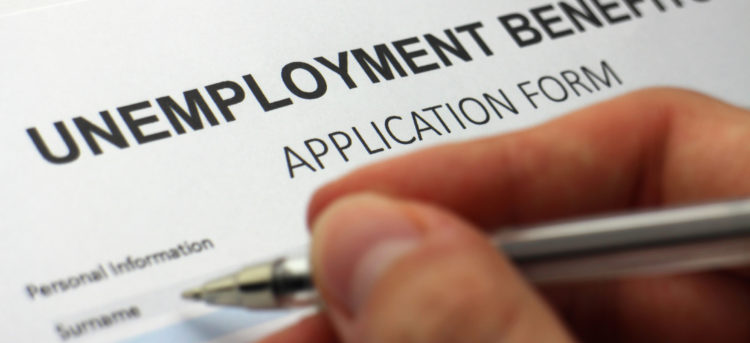
More than 22 Million Americans have filed for unemployment benefits in the past four weeks. They may be eager to get the money, but they may not be thinking about how the benefits are taxed.
The federal government taxes unemployment benefits as ordinary income (like wages), but you don’t have to pay Social Security and Medicare taxes on this income, says Oscar Vives Ortiz, a certified public accountant and member of the American Institute of CPAs Personal Financial Specialist Committee.
Most states tax unemployment benefits, too, although there are a few exceptions. A few states that have a state income tax do not tax unemployment benefits, such as California, Montana, New Jersey, Pennsylvania and Virginia. A portion of unemployment benefits can be taxable in Wisconsin, based on a complicated formula.
You’ll receive a Form 1099-G from your state unemployment division next January reporting the total unemployment compensation you received for 2020 (and whether or not you had any state or federal tax withheld from your payments), which you’ll report on Schedule 1 of your 1040 when you file your federal income taxes.
Tax Withholding Strategies
You can avoid a surprise bill at tax time if you choose to have income taxes withheld from your unemployment benefits, like you would from your salary. You can ask to have taxes withheld from your payments when you apply for benefits, or you can file IRS Form W-4V, Voluntary Withholding with your state unemployment office. You can only request that 10% of each payment be withheld from your unemployment benefits for federal income taxes.
But you may decide not to have taxes withheld if you need to stretch your benefits as much as possible now. “If you are strapped for cash and need every dollar for living expenses, I would take out minimal taxes now and deal with the shortage at tax time,” says Morris Armstrong, an enrolled agent in Cheshire, Connecticut. You may also have to pay a penalty because you didn’t pay taxes throughout the year. “If your stint is short-lived, or you expect it to be, and you do have a nest egg, then I would recommend that you withhold adequately.”
You may have some other options. Instead of having income taxes withheld from your benefits, you could pay estimated taxes each quarter, which adds more flexibility. Of you could have more money withheld from your paychecks if you return to work later in the year, says Ortiz.
Also keep in mind that if you end up earning more income this year, you may fall into a higher marginal tax bracket and the 10% withholding may not be enough, says Ortiz. “Revisit this throughout the year,” he says. “Again, this can be done through paycheck withholdings once you are back to work. You can also consider making estimated quarterly payments throughout the year.”
Taxes and Stimulus Payments
The tax situation is different for the $1,200 stimulus payments that people are receiving now – those payments are not taxable. “The stimulus payments that are being received are considered a refundable income tax credit, so this is not income that will be taxed at the end of the year,” says Ortiz.
The stimulus payments are technically an advanced payment of a special 2020 tax credit, based on your 2018 or 2019 income (your 2018 income is used if you hadn’t filed your 2019 income tax return yet). If your income is higher in 2020, however, you won’t have to pay back the stimulus payment. But if your income was too high in 2018-2019 to qualify for the stimulus but then it drops to within the adjusted gross income thresholds in 2020, you will receive the credit when you file your 2020 tax return, says Ortiz.
Single filers can receive $1,200 ($2,400 for married couples), plus $500 per dependent child under age 17, if your modified adjusted gross income was less than $75,000 if single, $112,500 if filing as head of household or $150,000 if married filing jointly. The payout amount starts to phase out by $5 for every $100 in income above that level.
This is a tax credit that was created specifically for the stimulus, so it isn’t just an advance payout of the refund you would have otherwise received.











